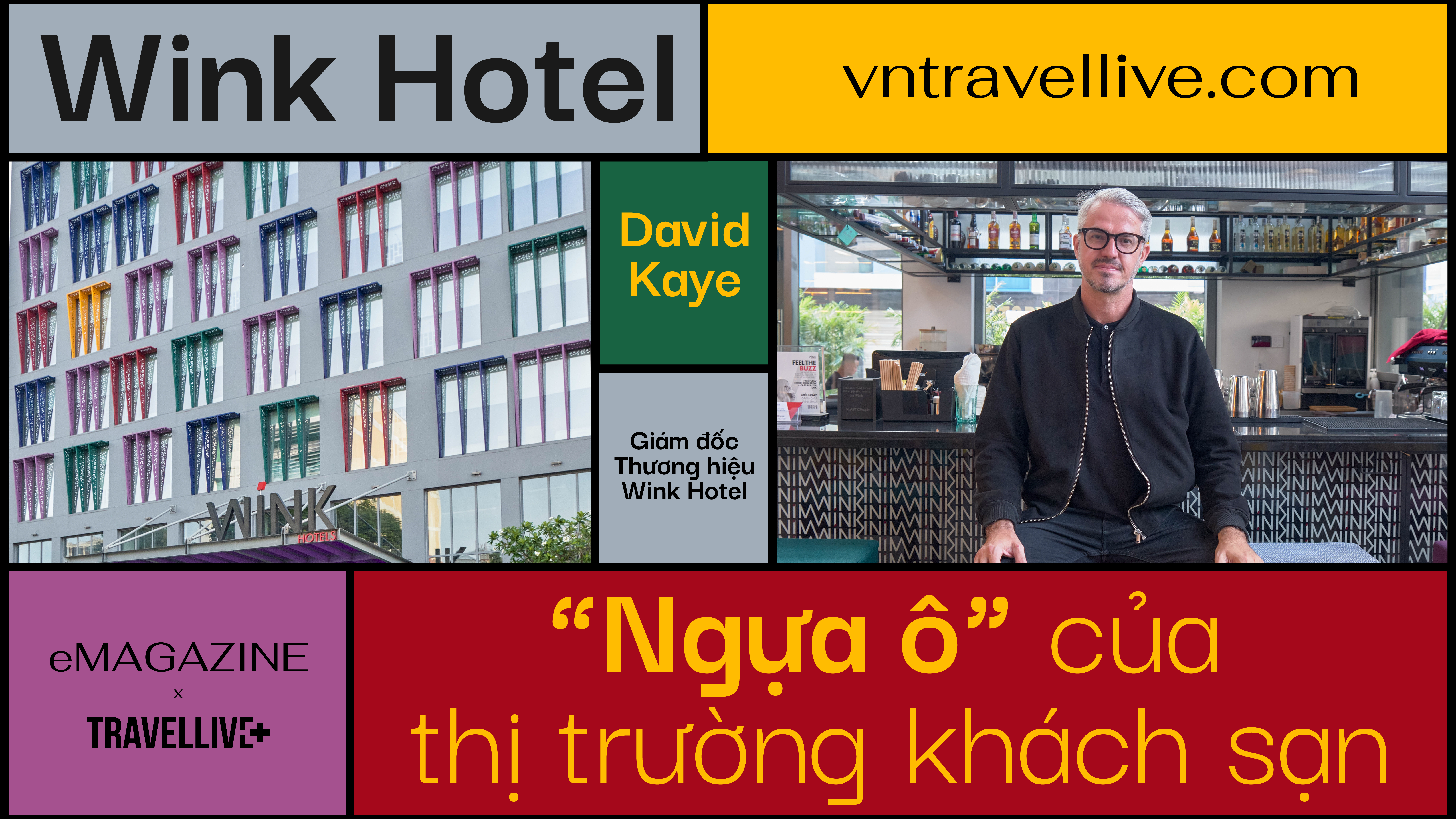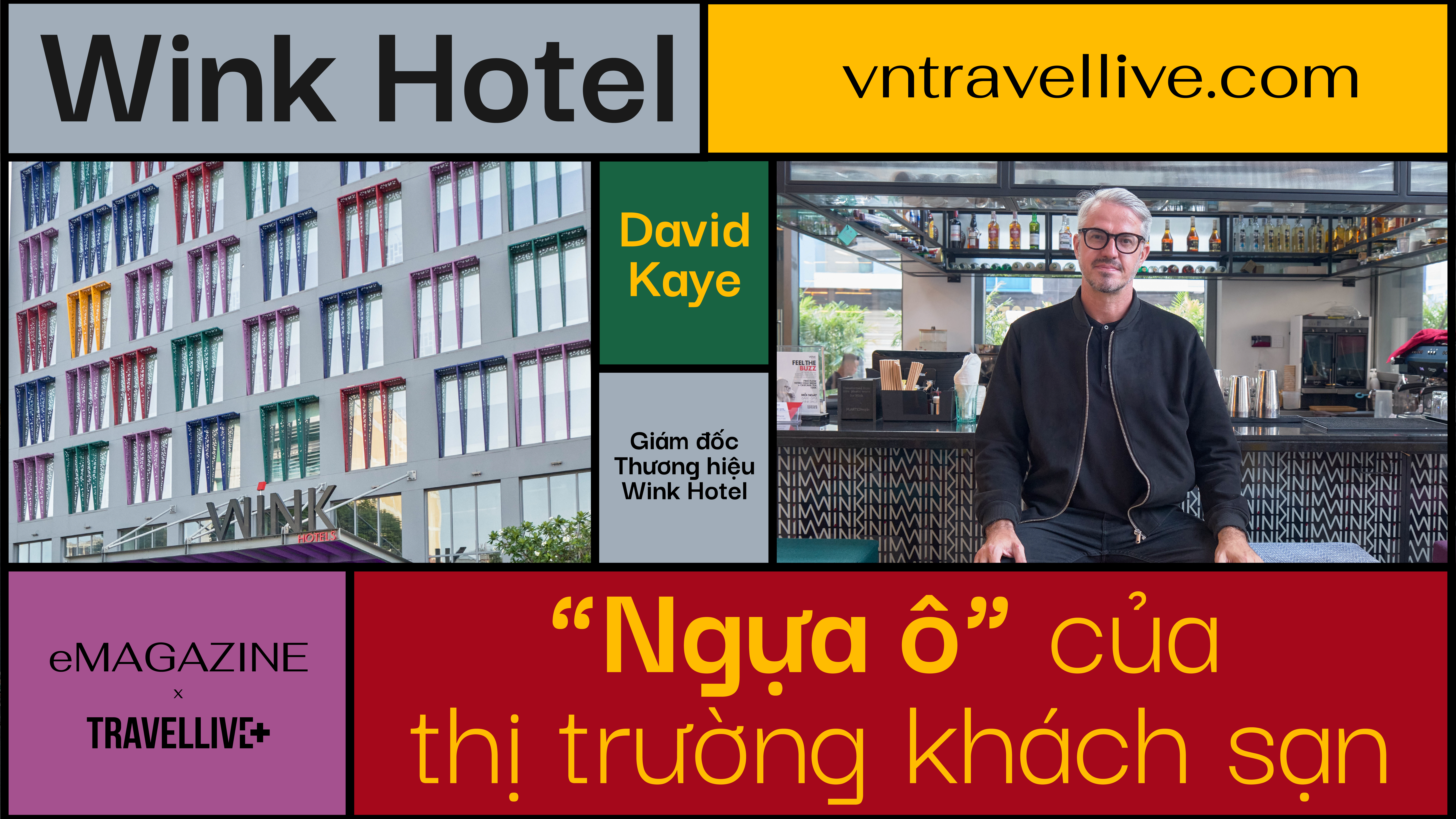No reception desk, no invoices, no obligation to use hotel dining services – Wink Hotel doesn't seem to follow the typical hotel model. So what does Wink have to offer to conquer Vietnam's rapidly evolving tourism market?
I arranged to meet David Kaye, Wink's Brand Director, on a rainy, sunny afternoon in Saigon. Located at the intersection of the bustling Nguyen Van Thu and Nguyen Binh Khiem streets, the building was easily visible, a vibrant structure in shades of red, blue, and yellow. These seemingly dazzling warm tones surprisingly harmonized with the characteristic hustle and bustle of Saigon. This was Wink Hotel, a refreshing new addition to the hotel industry in Ho Chi Minh City.
I told David that I had initially thought the colorful building was a newly opened, modern karaoke bar. "Unexpected, isn't it? We chose those colors because they represent the vibrant nightlife of Ho Chi Minh City," David said with a laugh.

As a smart hotel, Wink Hotel has no reception desk. Guests directly use a dedicated mobile app for self-check-in and check-out. Therefore, the check-in and check-out process is greatly simplified. Guests who book in advance simply scan the QR code provided in the app. In just a few minutes, guests can check in instantly.
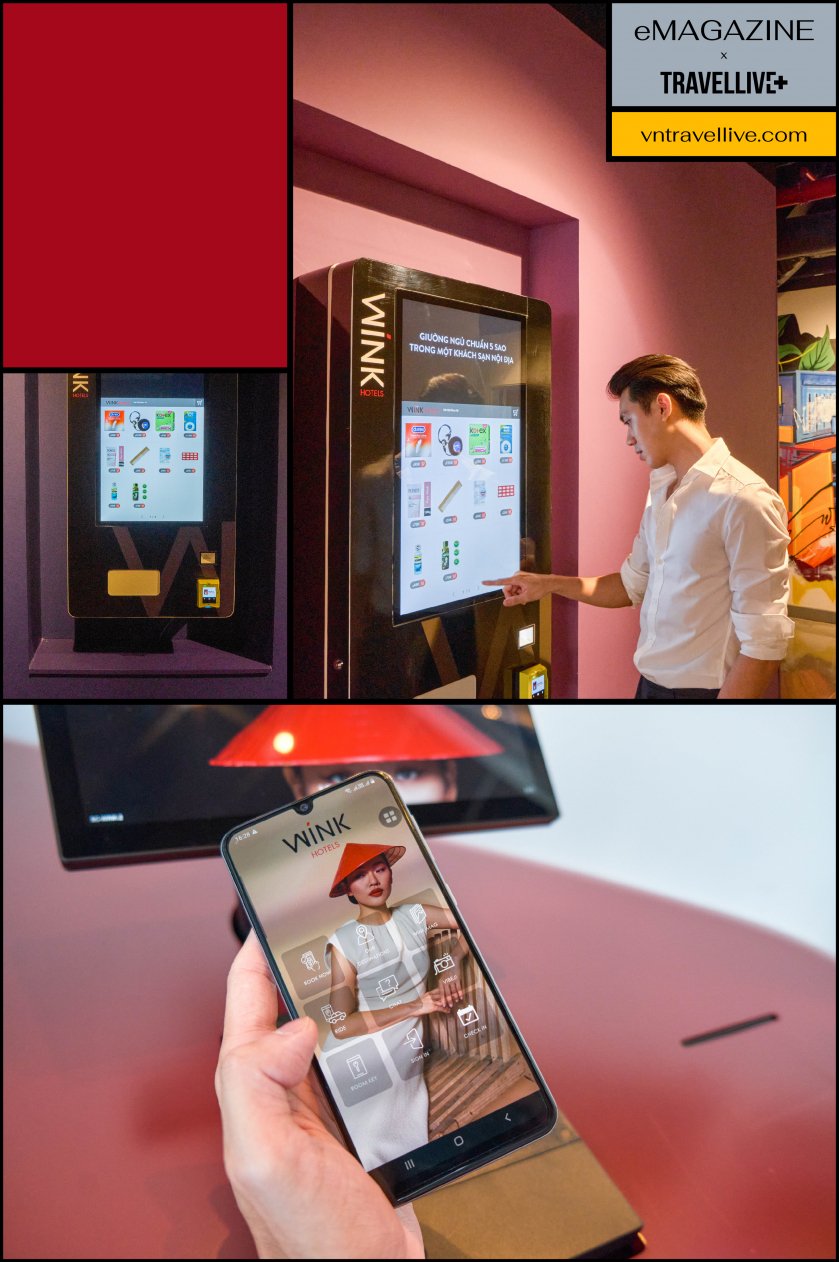
The Wink Hotel app also integrates features for paying for hotel items, connecting with airport shuttle services, and serving as a Q&A channel with hotel staff. Even more interestingly, the app is a "guidebook" to authentic local dining and entertainment spots around the city.
Unlike traditional hotels, Wink's lobby – known as Wink Space – isn't divided into distinct areas. Wink Space is a spacious, high-ceilinged area that offers a cozy yet not cramped atmosphere.
Here at Wink, guests can find plenty of sofas, high tables, and makeshift chess boards, allowing them to work and relax at the same time. At one end of Wink Space is a compact bar where guests can enjoy a classic iced latte or a unique cocktail.
Bringing the conceptsmart hotelDespite being a smart hotel with many modern technologies, Wink doesn't create a feeling of distance or coldness. The hotel makes the most of local materials to breathe life into the space, such as the 3D painting on the wall recreating the Tan An communal house opposite Wink, or the Grab & Go area with street vendor carts converted into stalls selling snacks and essential items like batteries, charging cables, and face masks...
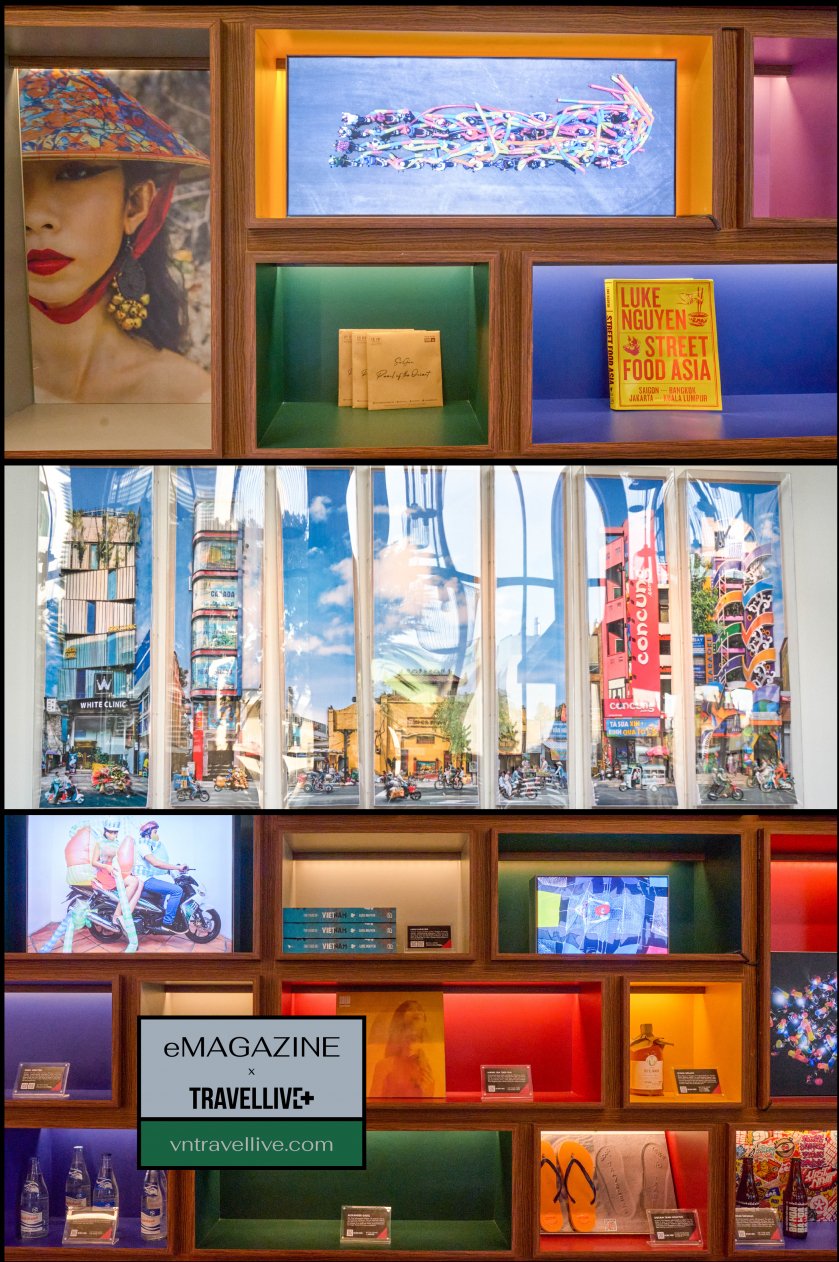
The bookshelves at the back also showcase products from local brands such as Deme beer and Lady Buddha Kombucha tea, along with the nearest locations selling those items via QR code.
"We don't want customers to regret spending too much money on trinkets. Customers can buy food outside if they wish, as we encourage them to explore the city," David shared.
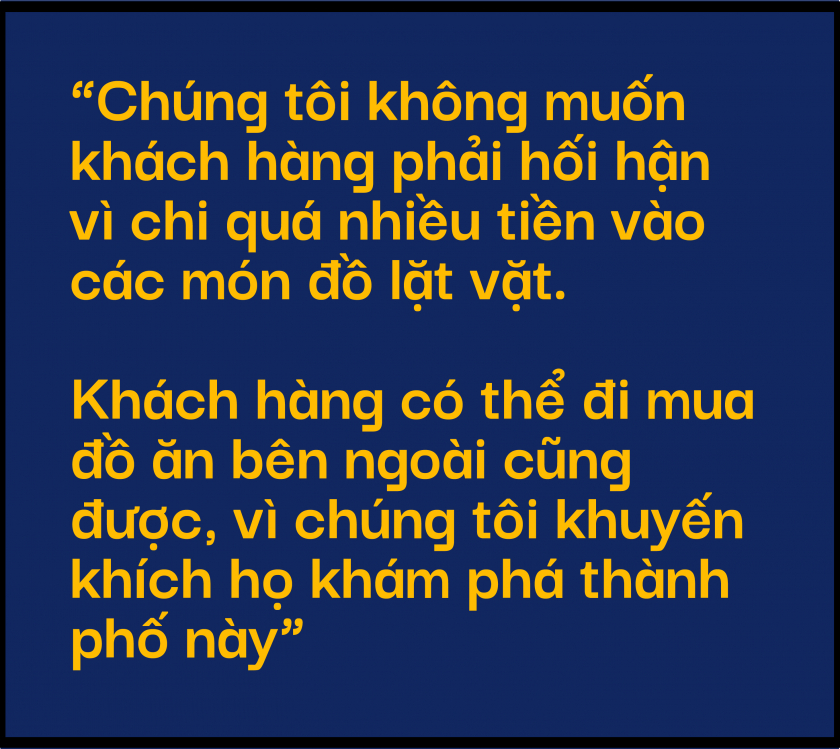

Wink Hotel currently has 12 floors and 237 guest rooms. Upon entering the room, I was surprised by its relatively small size. However, Wink Hotel makes good use of the space in the rooms to arrange the furniture harmoniously and minimally. In return, the quality of the items in the room is carefully selected and high-end. David said that Wink Hotel cares deeply about the sleeping and relaxation experience of its guests.
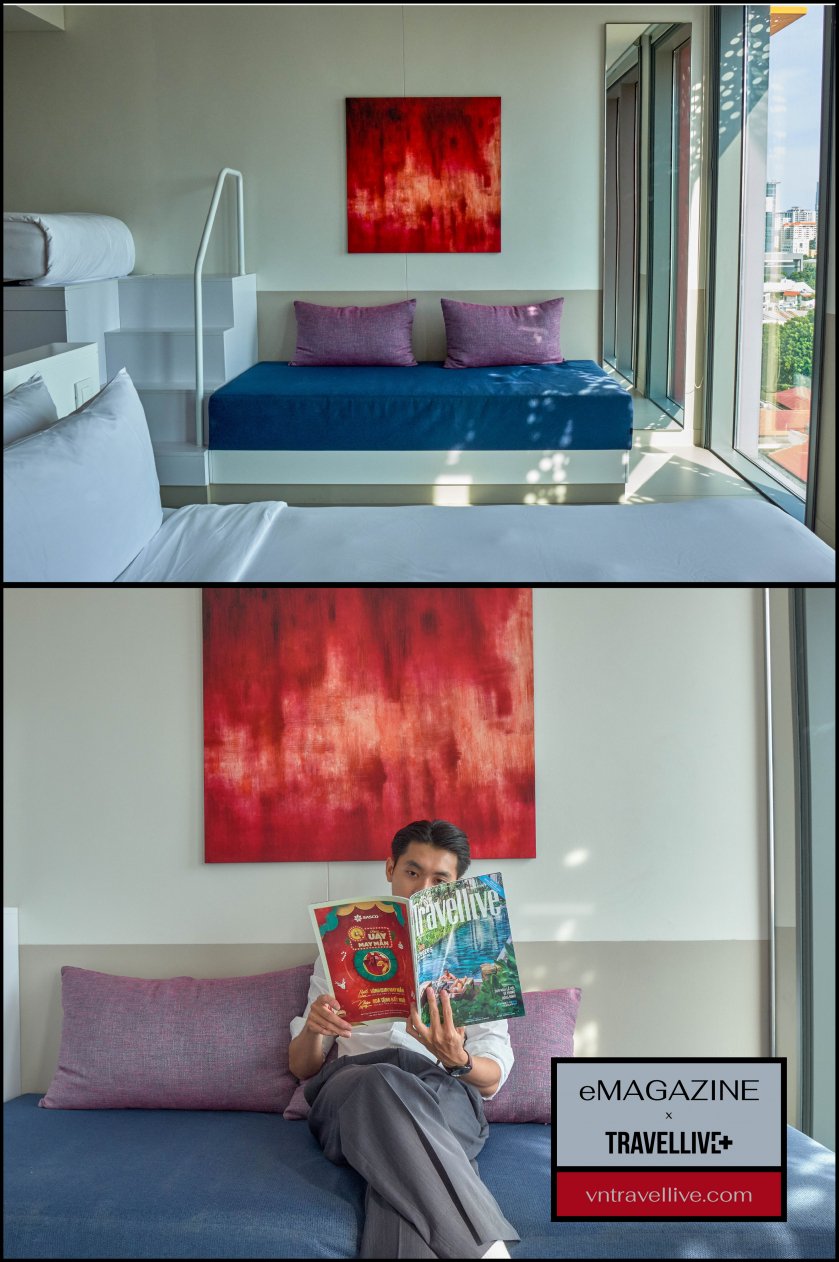
“We’re targeting young travelers and business people. They don’t usually spend much time in their rooms. Most of their time is spent working and exploring,” David said. Besides targeting the younger customer segment, Wink wants everyone to feel comfortable and welcome during their stay.
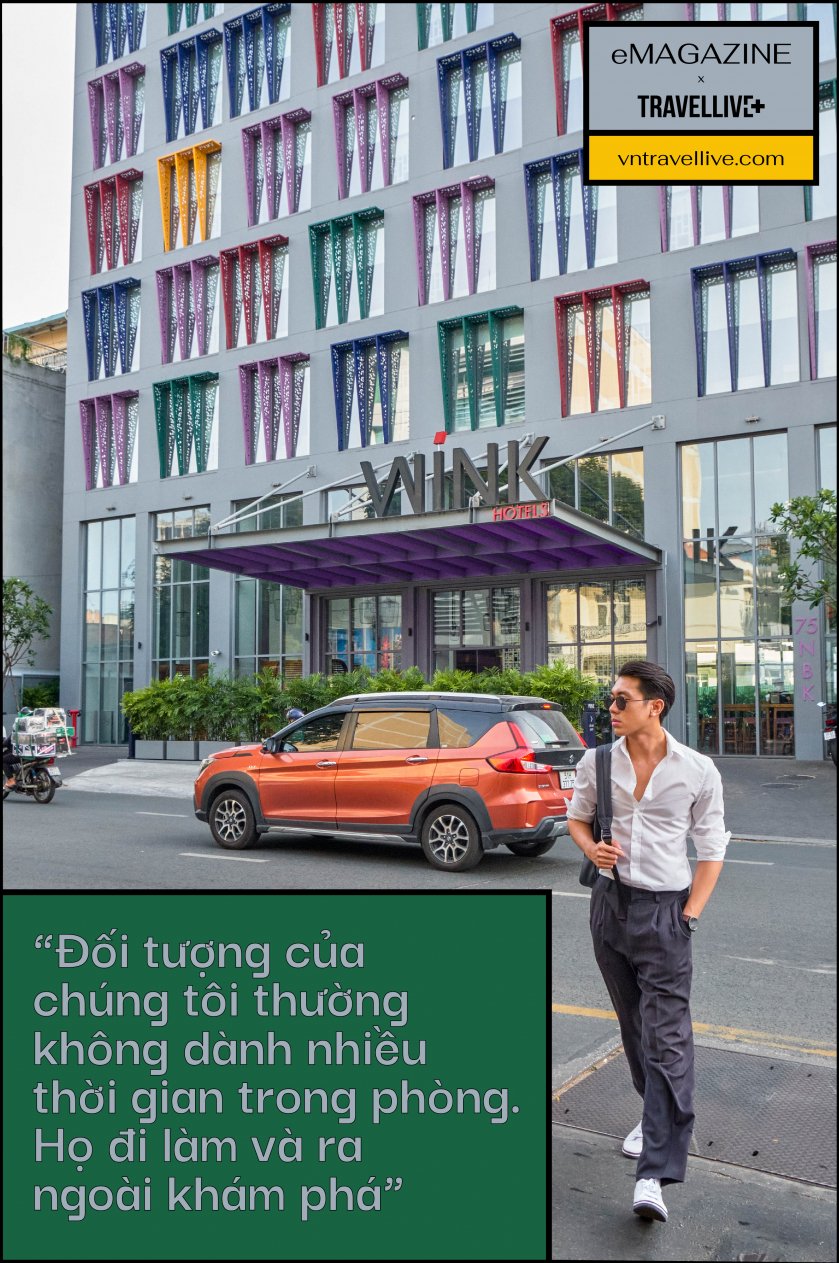
"We try not to separate the older customer segment. Wink's service satisfies younger travelers, while also making a 70-year-old feel comfortable," David said with a smile.
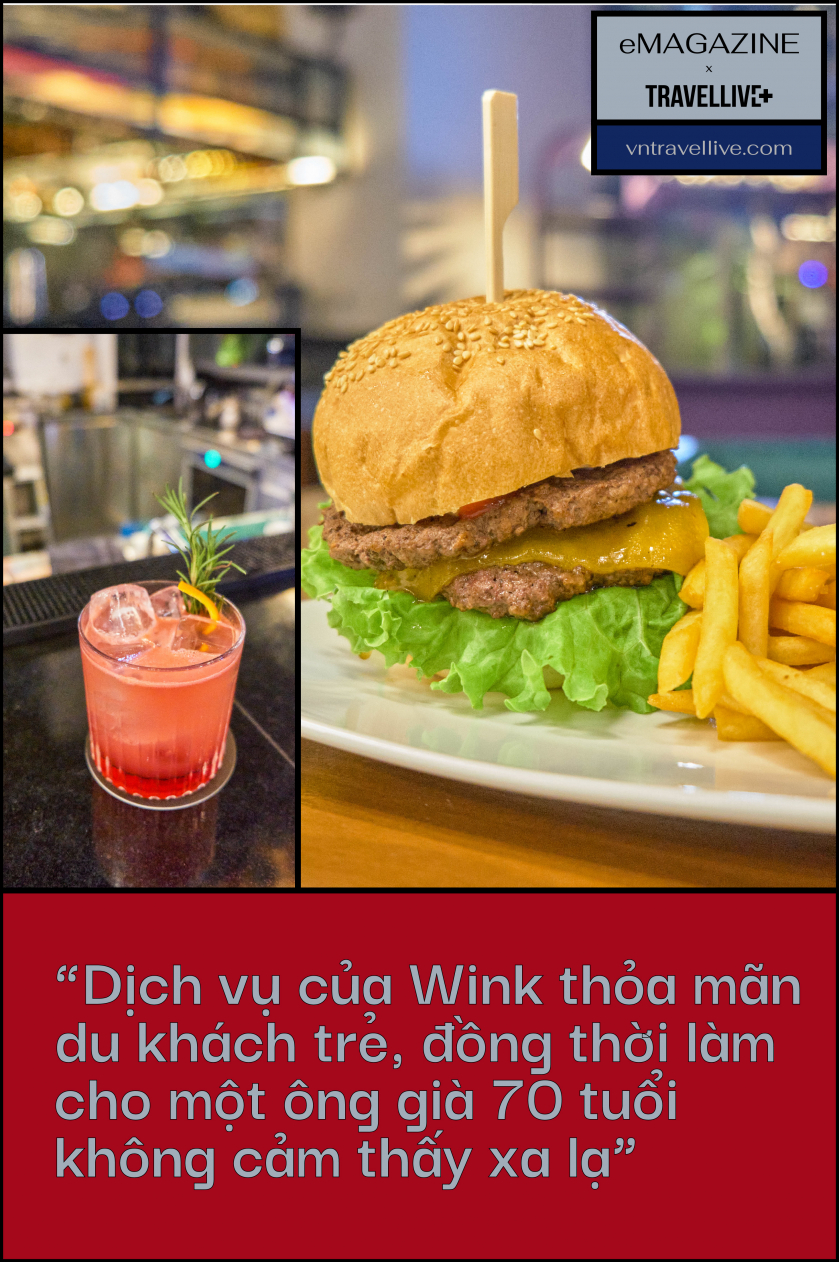
Wink's smart laundry room is located on the mezzanine floor. This area is designed with striking and distinctive colors. Customers can bring their own laundry at an affordable price. Sharing the laundry room floor is a gym. While not very spacious, it is fully equipped with modern machines and yoga mats to meet daily workout needs.
In addition to providing accommodation, relaxation, and entertainment, Wink Hotel has partnered with Toong to create a coworking space for guests who need to hold meetings, give presentations, or work during their staycation.
At Wink Hotel, guests are not restricted by typical check-in and check-out times. After checking in, guests can check out at any time within 24 hours. Importantly, the room key will automatically deactivate at that time. I was so engrossed in exploring the city that I arrived back at Wink past check-out time. However, the hotel flexibly reopened my room for 1-2 hours to allow me to unpack without any extra charge.

Wink Hotels has achieved LEED certification – an international standard for environmentally friendly design, construction, and operation – at the Gold level. Specifically, the hotel minimizes the use of single-use plastics. In the rooms, instead of using plastic water bottles, Wink chooses canned BeWater. Even the drinks and products on the Grab & Go counter are recycled in a similar way. At the same time, numerous recycling bins – made from recycled plastic by PLASTICPeople – are placed throughout the hotel.
“Our definition of sustainable tourism is constantly changing and evolving. You can’t be 100% green. And we don’t use green living as a profit-making tool,” David shared.
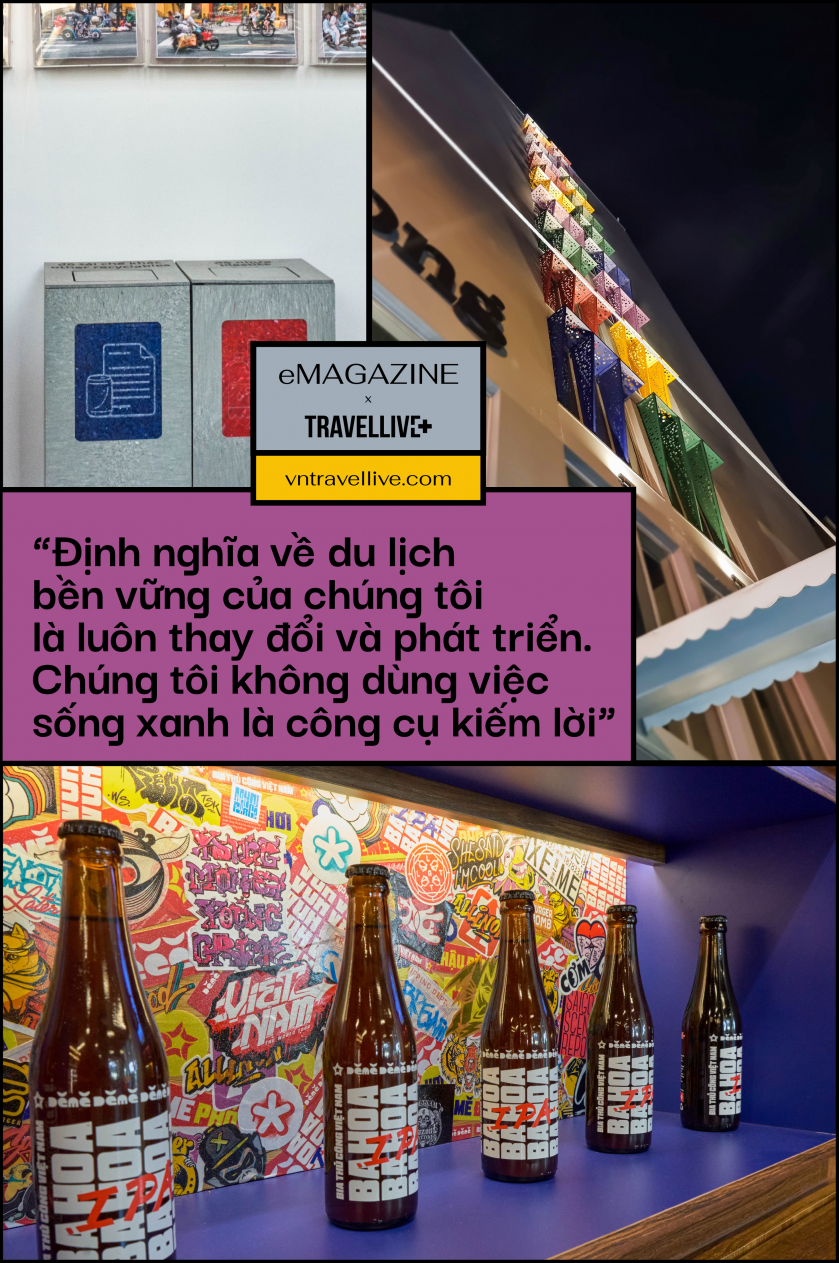
Therefore, transactions at Wink are primarily paid by swiping cards or using e-wallets, with no receipts required to reduce paper waste. Additionally, the glass in the rooms is made of a special heat-resistant material, preventing heat from escaping. Wink Hotel also incorporates triangular, perforated panels on the hotel's structure to allow airflow, cooling the heat-resistant glass. Guests don't need to set the air conditioning too low; the rooms remain cool.
In Vietnam, Wink Hotel is currently the first smart hotel with a green living concept. Helping customers change their ingrained habits is extremely difficult. However, "when customers respect, feel satisfied with, and understand the values that Wink is striving for, all of Wink's efforts are rewarded," David shared.

“I like to travel to places where there’s always a local friend to point me to places the locals frequent,” David said, recalling his travels in Bangkok and Indonesia. However, his experience wasn’t what he hoped for. The reception staff hardly listened to his preferences; instead, they directed him to places “a white guy usually goes to,” David chuckled.
Drawing from that experience, Wink trains Wink Guides to act as "local friends," helping travelers connect deeply with the city they visit. Unlike traditional hotels, Wink staff are not labeled with specific roles such as reception, waiter, bartender, or chef. All Wink Guides are equipped with the skills of those positions. Travelers might see a Wink Guide at the check-in counter one moment, then suddenly they're mixing drinks, serving food, or thoughtfully observing whether guests need assistance.
In particular, beyond the uniform t-shirts, Wink Guides are free to express their individuality. They don't need to adhere to any specific dress code. People can have tattoos, long or short hair, curly or straight hair, or dye their hair in various colors. David believes that strict rules cannot assess employee competence. Instead, Wink looks at what they accomplish.
"My principle is 100% freedom and 200% responsibility. Whether you arrive on time or not doesn't reflect anything. I judge you by the quality of your work and the feedback you receive from clients," David said.

In the near future, Wink Hotel plans to expand its influence throughout Vietnam. Currently, Wink is constructing two new properties along the coast of Da Nang city. More than just a provider of typical accommodation services, Wink also acts as a community connecting local brands with domestic and international tourists. Stepping outside its comfort zone, Wink could become a dark horse in Vietnam's tourism industry in the near future.
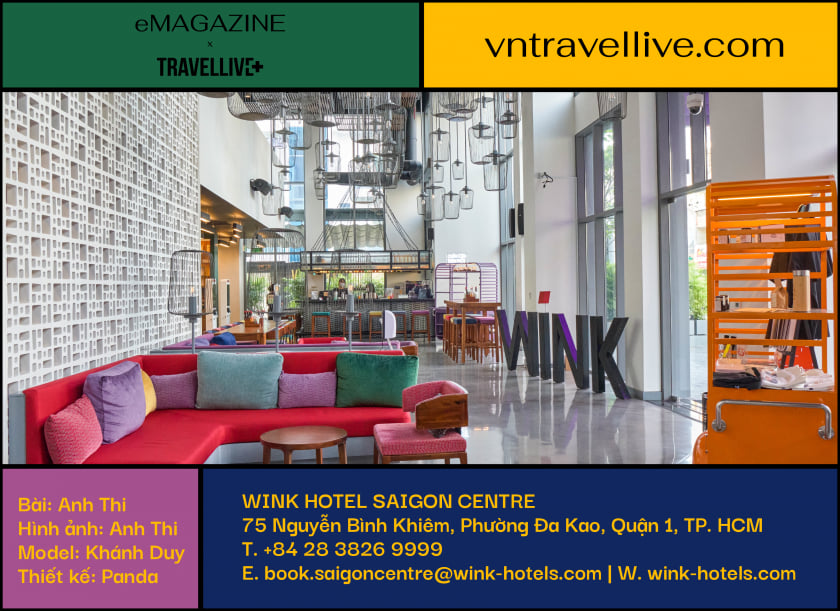

 VI
VI EN
EN



